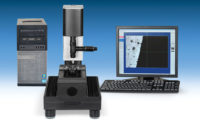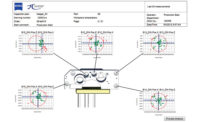Vehicle Launch Challenges
Overall initial quality improves to an average of 107 problems per 100 vehicles (PP100) in 2011 from 109 PP100 in 2010. However, the initial quality of launch models-those that are all-new or have had major redesigns-worsens by 10% to an average of 122 PP100 in 2011 from 111 PP100 in 2010. Conversely, carryover models-those that have had no significant redesign in the past year-have better initial quality than ever before. Owners of these vehicles report an average of just 103 PP100 in 2011, compared with 108 PP100 in 2010. Lower PP100 scores indicate a lower rate of problem incidences and therefore higher initial quality.
“Exciting models with the latest features are crucial for winning over today’s demanding consumers,” says David Sargent, vice president of global vehicle research at J.D. Power and Associates. “However, automakers must not lose their focus on the importance of these models also achieving exceptional quality levels. Expected reliability continues to be the single-most-important reason why new-vehicle buyers choose one model over another, and no manufacturer can afford to give consumers any doubts regarding the quality of their latest products.”
Only seven all-new or redesigned models rank among the top three of their respective award segments, compared with 17 models in 2010, and only one launch model receives a segment award this year vs. five launch models in 2010. Just one-fourth of redesigned models perform better than the outgoing previous-generation model did in 2010, and eight all-new models perform above their respective award segment average.
Software and Technology Challenges
The decline in vehicle launch quality is evident in a number of areas, most notably the engine/transmission and audio/entertainment/navigation categories. There are two primary causes for this quality decline:
“Clearly, consumers are interested in having new technology in their vehicles, but automakers must ensure that the technology is ready for prime time,” says Sargent. “Successful companies will be those that can take this incredibly complex technology and make it reliable, seamless and easy for owners to operate while they are driving. There is an understandable desire to bring these technologies to market quickly, but automakers must be careful to walk before they run.”
While overall vehicle quality continues to improve, the introduction of new technology is expected to continue to pose challenges for automakers. Overall problem rates for audio/entertainment/navigation systems in 2011 are 18% higher than in 2010 and 28% higher than in 2009.
The Initial Quality Study serves as the industry benchmark for new-vehicle quality measured at 90 days of ownership. The study is used extensively by manufacturers worldwide to help them design and build better vehicles and by consumers to help them in their vehicle purchase decisions. Initial quality has been shown throughout the years to be an excellent predictor of long-term durability, which directly impacts consumer purchase decisions. The study captures problems experienced by owners in two distinct categories: design-related problems and defects and malfunctions.
2011 IQS Ranking Highlights
Lexus leads the overall nameplate rankings with 73 PP100 on average. Following in the rankings are Honda (which improves to second rank position in 2011 from sixth in 2010), Acura, Mercedes-Benz and Mazda (which improves to fifth rank position in 2011 from 18th in 2010), respectively. Land Rover posts the largest improvement in 2011, reducing problems by 47 PP100 from 2010.
Honda garners seven segment awards for the Accord, Accord Crosstour, Civic (in a tie), Element, Fit, Insight (in a tie) and Ridgeline. Lexus receives four segment awards for the ES, GS, GX and LS models. For a second consecutive year, the Lexus LS has the fewest quality problems in the industry with just 54 PP100.
Chevrolet, Ford and Mercedes-Benz receive two awards each. Chevrolet receives awards for the HHR and the Tahoe; Ford for the F-150 and the Taurus; and Mercedes-Benz for the GLK-Class and the E-Class cabriolet/coupe. Also receiving segment awards are the Cadillac Escalade; Chrysler Town & Country; Dodge Challenger; and Mazda MX-5 Miata.
Among all-new and redesigned models, the Hyundai Equus and Dodge Durango are notably strong performers, each ranking second in their respective segment.
Assembly Plant Awards
Three assembly plants receive Platinum Plant Quality Awards (in a three-way tie) for producing models yielding the fewest defects and malfunctions: the Toyota Motor Corp. Cambridge South, Ontario, Canada, plant (which produces the Lexus RX); the Toyota Motor Corp. Kyushu 2, Japan, plant (which produces the Lexus ES, IS and RX); and the Honda Motor Co. plant in Greensburg, IN (which produces the Civic). These plants average just 24 PP100. Plant awards are based solely on average levels of defects and malfunctions and exclude design-related problems.
In the Europe and Africa region, Daimler’s Bremen 1, Germany, and East London, South Africa, plants each receive a Gold Plant Quality Award in a tie. The Bremen 1 plant produces the Mercedes-Benz C-Class, E-Class cabriolet/coupe and GLK-Class, while the East London plant produces the C-Class.
The 2011 U.S. Initial Quality Study is based on responses from more than 73,000 purchasers and lessees of new 2011 model-year cars, trucks and multi-activity vehicles surveyed after 90 days of ownership. The study is based on a 228-question battery designed to provide manufacturers with information to facilitate identifying problems and drive product improvement. The study was fielded between February and May 2011.


